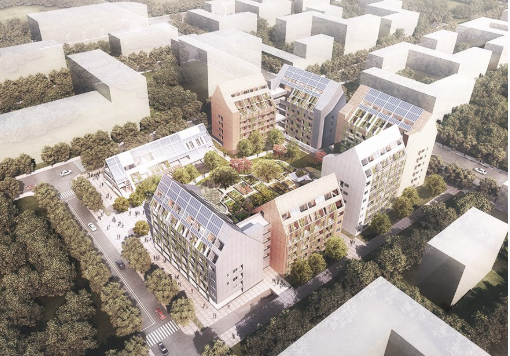What Architects Can Do about Circular Economy
Date : 2018-07-01
Authors: Ching Hwa Chang (張清華), Founding Partner and Principal Architect of Bio-architecture Formosana (BAF); & Chin Wei Lee (李金威), Project Director of Bio-architecture Formosana (BAF)
Published in Architectural Institute of Taiwan Magazine, July 2018 (no.91), p.32-p.37
Topic of the Issue: "Architectural Design under the Framework of Circular Economy"
abridged translation:
"Circular Economy, like Green Building, is never an invention of our time. Before Industrial Revolution, and before resources on earth have yet to be so rapidly developed and consumed, things were different. While "scarcity" in the old days means less comfortable life due to the restraint of technology, today it ironically refers to the status of exhausting resources driven by the linear economics which powered by technology so people can enjoy a more comfortable life. Once, our government compares construction industry to the locomotive that boosts the economical activity of its surrounding neighborhoods. Nowadays, emphasizing on both economy and circulation becomes our biggest challenge──High technological development accelerates as well as the consumption of energy; the "Forward-Looking Infrastructure Development Program" which the government promotes requires great amount of construction and both human resources. How should we develop circular economy BEFORE producing lots of waste?
I remember we used to propose a term "Tree-ology"[1] when promoting Green Building at past, with the hope that our construction industry can learn from a tree. A tree does not live on its own and for its own sake. While it is growing and prospering, it also provides the biological surroundings nutrition thus benefits other creatures to co-habitat with the tree. It also purifies air and water for other lives. Ultimately, when other lives decay, they wither with the plants and leave no trace or waste to the earth. "Tree-ology" is the origin of circular economy. To enter a circulating circle, instead of pursuing 100% development, we choose to spare efforts on going back to 0."
[1] tentative translation; in Chinese a coined term which refers to knowledge concerning Trees, and pronounced as same as "mathematics".
For full text, please see the scan file attached below
Published in Architectural Institute of Taiwan Magazine, July 2018 (no.91), p.32-p.37
Topic of the Issue: "Architectural Design under the Framework of Circular Economy"
abridged translation:
"Circular Economy, like Green Building, is never an invention of our time. Before Industrial Revolution, and before resources on earth have yet to be so rapidly developed and consumed, things were different. While "scarcity" in the old days means less comfortable life due to the restraint of technology, today it ironically refers to the status of exhausting resources driven by the linear economics which powered by technology so people can enjoy a more comfortable life. Once, our government compares construction industry to the locomotive that boosts the economical activity of its surrounding neighborhoods. Nowadays, emphasizing on both economy and circulation becomes our biggest challenge──High technological development accelerates as well as the consumption of energy; the "Forward-Looking Infrastructure Development Program" which the government promotes requires great amount of construction and both human resources. How should we develop circular economy BEFORE producing lots of waste?
I remember we used to propose a term "Tree-ology"[1] when promoting Green Building at past, with the hope that our construction industry can learn from a tree. A tree does not live on its own and for its own sake. While it is growing and prospering, it also provides the biological surroundings nutrition thus benefits other creatures to co-habitat with the tree. It also purifies air and water for other lives. Ultimately, when other lives decay, they wither with the plants and leave no trace or waste to the earth. "Tree-ology" is the origin of circular economy. To enter a circulating circle, instead of pursuing 100% development, we choose to spare efforts on going back to 0."
[1] tentative translation; in Chinese a coined term which refers to knowledge concerning Trees, and pronounced as same as "mathematics".
For full text, please see the scan file attached below
